
How to Move to Prague
It's not exactly accurate to say that moving to Prague is easy peasy. Depending on your situation and your purpose for relocating to the city, you may have to spend a lot of time and effort on this process. In truth, however, the process itself is quite simple. They generally include:
Getting the right long-term Visa/ registering for your long-term stay in the Czech Republic
Applying for a residency permit
Finding accommodations
Once you're done with these steps, you can finally settle down and start your new life in Prague!
Is Prague a Good Place to Live?
Yes, it is! Thanks to the fact that the Czech Republic is a relatively peaceful country, you’re guaranteed to stay safe in this city. The standard of living is also high, complete with all the necessary facilities and ample luxuries available to you. And of course, it helps that the Czech capital is filled with many fascinating sights. Seeing all that beauty, history, and heritage as you live your daily life here won't hurt.
Pros and Cons of Living in Prague
As with any other city in the world, relocating to Prague has pros and cons. The most common ones include:
Pros
Large expat community
It’s generally safe
Affordable cost of living
Summers are mild
Great public transport
Locals are warm and welcoming
Cons
Higher costs for Foreigners
Expats are not allowed to purchase property
Vegetarians/Vegans won't like the meat-centric local cuisine
Learning the Czech language is needed
Winters are harsh
Watch out for taxi scams
Prague Overview
As the capital city of the Czech Republic, it's no surprise that Prague is the largest city in the country. The metropolis currently has around 1.365 million residents, making it a major city in the world. Though it boasts a large expat community, Czech remains the dominant language here. And in terms of weather and climate, Prague experiences all four seasons. Its hottest month is July, which has an average temperature of 64°F (18°C), while its coldest month is January, which has an average temperature of 39°F (4°C). The good thing about it is that Prague's summers are relatively mild but do expect winters to be particularly freezing.
Where is Prague on a World Map?
Prague is located right smack at the center of the Czech Republic. The country itself is also right smack in the middle of Central Europe, surrounded by Germany, Austria, and fellow Slavic countries like Poland, Slovakia, and Slovenia.
What is Prague Like?
In a nutshell, Prague is a combination of the present and the past. Today, it serves as the capital city of the Czech capital and as a major business hub in the country. At the same time, the well-preserved castles, palaces, and churches harken back to its grand past, reminding the people of today and tomorrow of the city's amazing history and heritage.
Why Visit Prague?
You really ought to at least visit Prague if you are:
A history buff
An art lover
Fascinated with grand architecture
Love sightseeing
Want to immerse yourself in different cultures
Aim to make friends with locals
Curious of unique cuisines
A true romantic
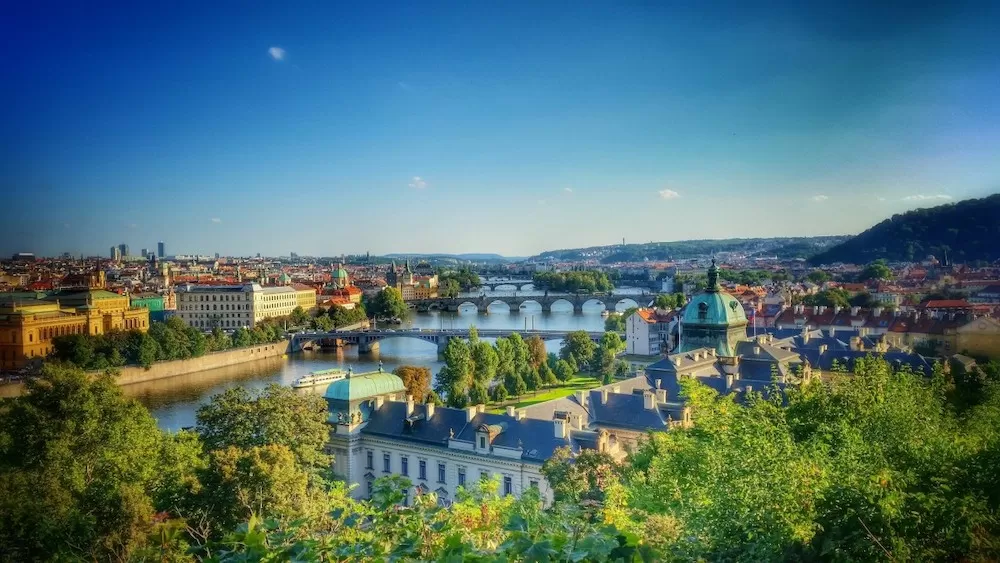
Source: Wikimedia Commons
Visa to Visit Prague
More often than not, the first step to moving to Prague—or anywhere else for that matter!—is getting a visa. And in the Czech Republic, you may need to get a Schengen Visa. It depends on where you're coming from and the nature of your stay in the country. For relocation, you'll need to get a long-term visa that corresponds to your purpose in the Czech Republic, be it a work visa or a student visa.
Do I Need a Visa for The Czech Republic?
It depends. Since the Czech Republic is in the Schengen Area, those coming from fellow Schengen countries don't need to get a visa. The same goes for those coming from countries eligible for the ETIAS Visa Waiver Program, which includes the US, the UK, Japan, Singapore, Israel, Australia, and more. On the flip side, those coming from outside of the Schengen Area will need to apply for the correct long-term visa to enter and stay in the country.
Does Prague Require a Visa?
As long as you have your long-term visa, you don't need anything else to stay in Prague for a long time. After a certain period, however, you will need to apply for a residency permit to complete your relocation to the Czech capital.

Source: Wikimedia Commons
Getting Around Prague
Just because most of Prague is old, it doesn't mean that the entire city is stuck in the past. On the contrary, the Czech capital boasts many contemporary conveniences. Take Prague's public transport, for example. The city offers various ways to get around, including an underground metro system, a tram system, day & night buses, taxis, and more. No matter where you're going, you're sure to reach your destination no matter what.
How to Get Around Prague
As already mentioned, there are many ways to get around Prague. The most common is to take the metro or the tram. Both are easily accessible, especially when you get a transit pass that'll give you unlimited access to these systems for 24 to 72 hours. You can also take the bus or taxi, especially if your destination isn't exactly near the metro/tram stations. And since Prague is a European city, you can expect to have an easy time riding your bike around too.
Best Way to Get Around Prague
The best way to get around Prague depends on how much money you have and where your destination is. If it's a central spot and you want to save money, just take the metro/tram. If your destination is a bit more specific and you have money to spare, you can always use a transportation app to book a ride. And if you prefer a more active way to get around, riding your bike is a great alternative.
Is Prague a Walkable City?
Yes, it is! There's even a good chance you'll prefer to just walk around instead of going on the metro or taking a tram to commute. This way, you can enjoy all the wonderful sights that Prague has to offer along the way!
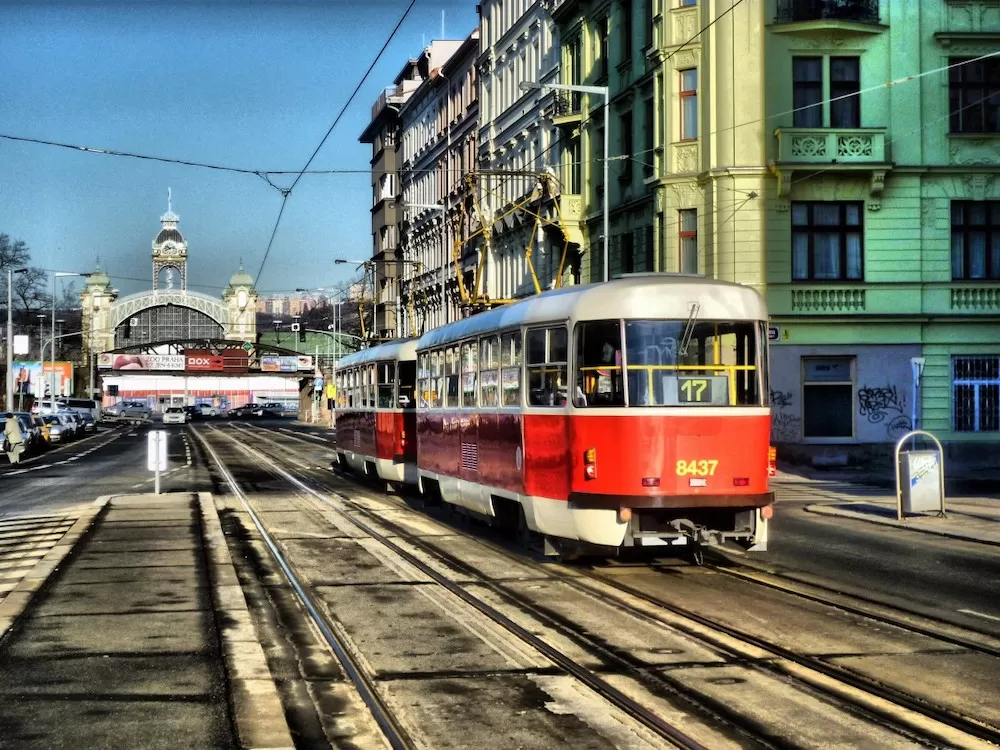
Source: Wikimedia Commons
Where to Live in Prague
Before settling down in Prague, you need to know its districts first. There are many neighborhoods in Prague and they're all different from one another. You'll need to choose your new home among them and you'd do well to pick the right one. Those moving to Prague for work, for example, will want to stay in Smíchov, the commercial and industrial district of the city. Hipsters, on the other hand, will enjoy Žižkov's lively nightlife or Dejvice's diversity better. And of course, history buffs will undoubtedly stay in Staré Město, Prague's Old Town district.
Where to Stay in Prague
As already mentioned, the best place to stay in Prague depends on your specific situation. What might be the most suitable district for someone raising their family in the city would not be the same for one who's living on their own and wants to have lots of fun. With that said, there's a consensus that popular neighborhoods like Staré Město, Malá Strana, Žižkov, and Nové Město as the most popular parts of the city.
What Neighborhood to Stay in Prague
If you want to be in the center of all the action in Prague, stay in the most popular districts. They include Staré Město, (the old town quarter), Nové Město (the newest area in the city), and Malá Strana (home to a ton of hotspots). These are the places where you'll want to live out the cosmopolitan lifestyle in the Czech capital.
Where Do Expats Live in Prague?
Vinohrady is where you'll find many of the expats in Prague. The district is trendy but also casual, perfect for drawing in the city's new residents who want to have fun but also immerse themselves in local life.
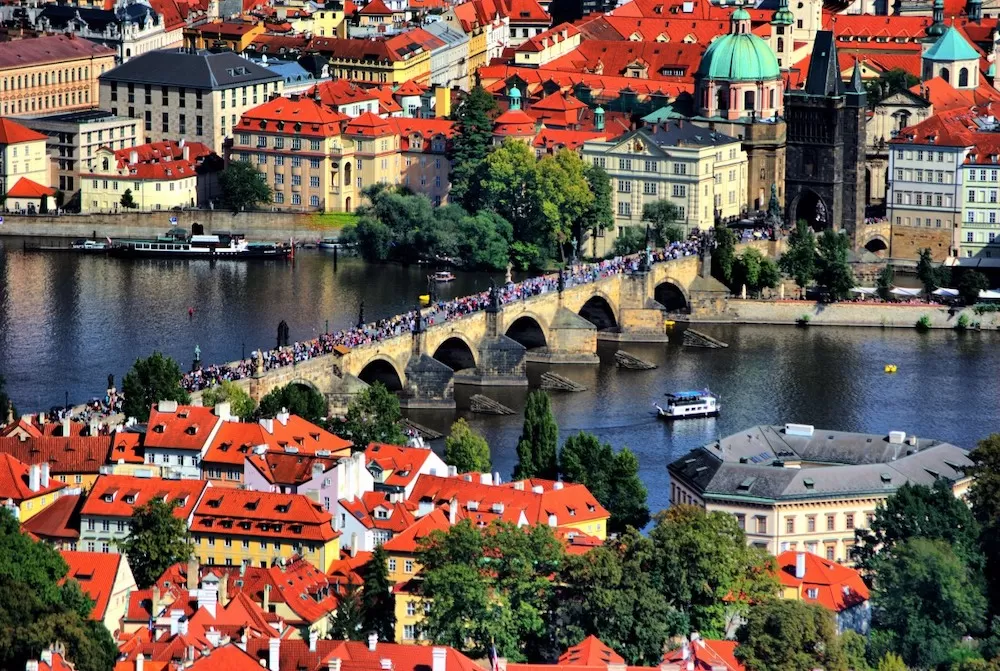
Source: Wikimedia Commons
Prague Living Costs
As the capital city and main business hub of the Czech Republic, it's not surprising that the living costs in Prague are above average. It's not the most expensive city out there, but you'll still have to pay a pretty penny to remain comfortable here. For context, the average salary in the city is 40,918.82 Kč. A single adult living in the city spends about 27,320.90 Kč per month without rent. Meanwhile, a family of four spends around 90,504.20 Kč per month without rent. So if you add the rent, those figures will go even higher!
Average Living Costs in Prague
As already mentioned, a single adult spends about 27,320.90 Kč per month while a family of four spends around 90,504.20 Kč per month, both without rent. So what if you add the rent then? Well, renting a luxury apartment in Prague typically costs between a minimum of 15,000.00 Kč to a maximum of 100,000.00 Kč per month. Add those figures to how much a single adult or a family of four spends in a month and the numbers you'll get are downright astronomical!
Is Living in Prague Expensive?
Yes, it is. Even as a single adult who has no dependencies, you'll already spend tens of thousands of Czech Korunas just to get by. What more if you’re raising a family? Or if you want to live out a more affluent lifestyle?
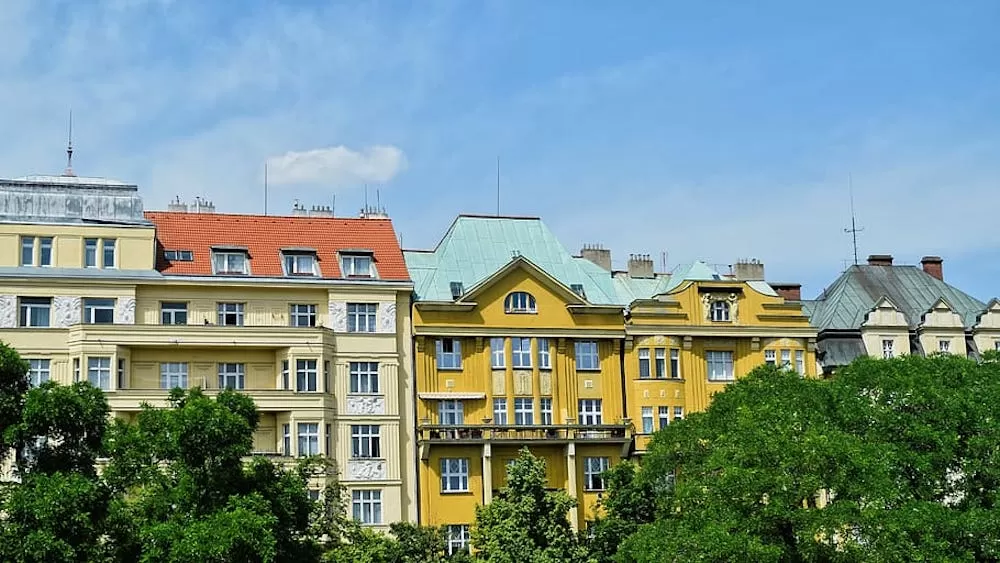
Source: Wikimedia Commons
Employment in Prague
The Czech Republic may not be a wealthy country but it has a stable economy and a strong job market. Currently, it boasts a 3.7% unemployment rate, among the lowest in all of Europe. So on the off chance you got to relocate to Prague without a job, you won't have that difficult of a time to land employment here. Czech Republic's main industries include high-tech engineering, transportation equipment, electronics & machine-building, and pharmaceuticals. Part of the reason why the country's unemployment rate is so low is that it has several factories that employ lots of people.
Working in Prague
The work culture in Prague is quite strict and structured but it also lets you maintain the right work-life balance. The Czech Republic's official work hours are 40 hours per week. Employees also have a right to have a total of 20 paid vacation days per year. Moreover, in terms of going overtime, an employee's working hours must not exceed a maximum total of 52 hours per week.
Jobs in Prague for Foreigners
The fact that Prague has a big expat community means that there are many jobs available to them. Finding work in the Czech Republic isn't all that hard, even for foreigners. There are many job opportunities of various levels and they all pay relatively well. Whether you work as a server in a popular Prague restaurant or as a top executive in a mid-range company, you're given as much a chance as a local. Do note that you're odds are better if you're fluent in Czech.

Source: Wikimedia Commons
Education in Prague
If you're raising a family, moving to Prague means you'll also have to find a school for your kids to continue their studies. Fortunately, that's not a problem in this city! The Czech capital is home to several acclaimed educational institutions. It's no surprise that schools from other parts of the world take part in exchange student programs with Prague. The city has a lot to teach, especially when it comes to history and culture.
Schools in Prague, Czech Republic
With all of that said, what are the best international schools in Prague? Well, this extensive list includes the American Academy in Prague, International School Prague, Park Lane International School, and Riverside International School. What's great about these institutions is that most of them teach in English, making it easier for your kids to keep up if they're not fluent in Czech. They also boast high-quality curriculums from countries like the US, the UK, and more. In these respected schools, your little ones are sure to get the best education available!
Is Prague Good for Students
Yes, it is! Prague is known as a student city. There are countless prestigious institutions as well as heritage sites that teach history, social studies, and more. Moreover, the Czech capital is a generally safe place, perfect for students to go about their day and focus on their studies without too much concern for their well-being.

Healthcare in Prague
Did you know that the Czech Republic's healthcare system is regarded as one of the best in the world? Yep, it's true! Since it operates on a universal system, the national government ensures that everyone living here legally will get ample coverage, be it with the public option or with added private insurance. Either way, healthcare won't pose that big of a problem when you move to Prague
Prague Health Centers
There's no scarcity of great hospitals in Prague. Arguably the most prominent is the Bulovka Hospital, located in the eastern district of the city. This is probably the best health center for foreigners as it's an English-speaking institution. The same goes for Hospital Na Homolce, especially since the hospital also treats foreign patients without public health insurance. Thomayer Hospital, on the other hand, boasts state-of-the-art medical technology that lets them do all sorts of treatments.
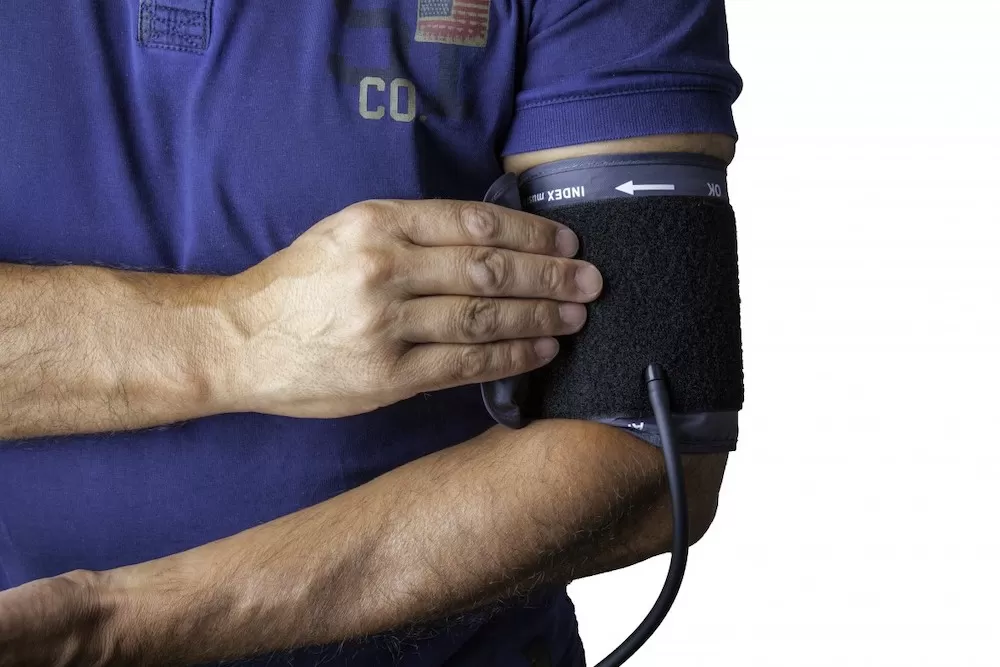
Safety in Prague
Prague is one of those rare capital cities that are actually safe. More often than not, major cities tend to have high crime rates but not for this city! The crime rates in Prague are low. How low, you ask? Well, its general crime rate is 16.70%, one of the lowest in all of the world. Even its rate of increasing crimes, 42.89%, isn't all that high. And the city's safety rate during the day is a very high 91.53%.
Is Prague Safe at Night?
Yes, it most definitely is! Prague's safety rate at night is 73.76%, one of the highest in all of Europe.
Safest Neighborhoods in Prague
The safest neighborhoods in Prague are Staré Město, Malá Strana, Nové Město, Žižkov, Karlin, Smíchov, and Vinohrady. Incidentally, these are also among the most popular central areas of the Czech capital.
What Not to Do in Prague
Just because Prague has low crime rates, it doesn't mean you can just go outside without a care in the world. You should still do your part in staying safe in this bustling metropolis. As such, don't ever do the following:
Show off your expensive stuff.
Not secure your bags as you walk around
Go out at night without company (especially if you're new to the city)
Go out with an empty wallet
Misbehave

Source: Wikimedia Commons
Taxes in Prague
You may think you know how they do taxes in the Czech Republic since tax systems among European countries don't differ as much but think again! The way this country imposes its taxes is quite different from those of its neighboring nations. For instance, the income tax rate here is at a fixed 15% no matter how much you earn. With this advantageous system, it's no surprise that the Czech Republic is considered a tax haven.
Czech Republic's Taxes for Foreigners
Foreigners living in Prague have to pay the same taxes as citizens. At the same time, they're entitled to available tax reliefs and deductions, especially when they work for local Czech companies.

Source: Wikimedia Commons
Relocation Tips for Prague
To cap off this relocation guide, here are a few relocation tips that you'd do well to follow as you settle down and start your new life in Prague.
Open a local Czech bank account
Join a local mobile network and get a SIM card for your phone
Choose a place that's near your workplace/school.
Enroll in a language school in Prague and learn Czech.
Learn about the various Czech social customs and always follow them.
Get to know people and build a strong network.
Maintain the right balance for your diet.
Prepare your winter wardrobe!
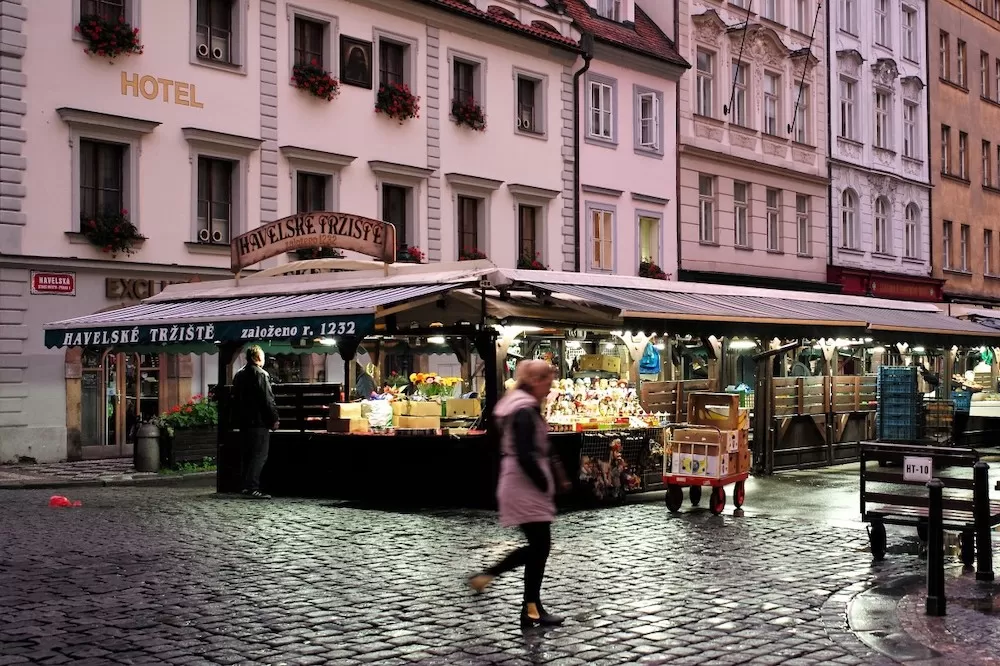
Source: Wikimedia Commons
Moving to Prague isn't all that complicated if you get right into it. The process is fairly simple, even though it may require a lot of time and effort from you. Fortunately, this relocation guide can help you get the basics down pat!